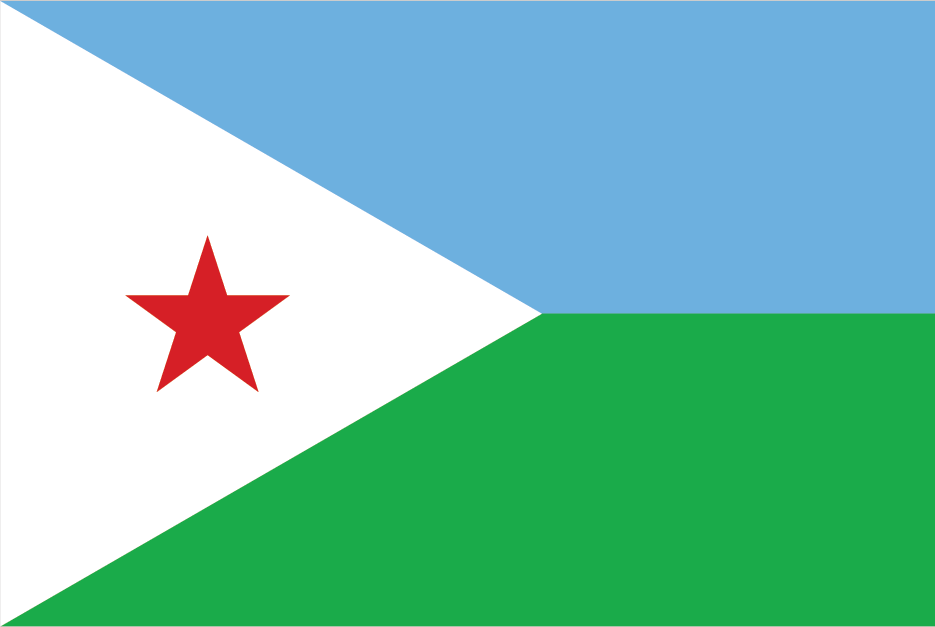
Sustainability Efforts
Country: Djibouti
Explore sustainability efforts in Djibouti. The United States Environmental Protection Agency (“EPA”) said it well when they state:
“Sustainability is based on a simple principle: Everything that we need for our survival and well-being depends, either directly or indirectly, on our natural environment. To pursue sustainability is to create and maintain the conditions under which humans and nature can exist in productive harmony to support present and future generations.”
About Djibouti
Djibouti is a small country located in the Horn of Africa. It is known for its strategic location at the entrance to the Red Sea and its importance as a major shipping hub. The capital city, Djibouti City, serves as a key port for trade and connects Africa, Asia, and Europe. Djibouti has a diverse population and is influenced by Arab, African, and French cultures. The country’s economy is largely driven by port services, logistics, and trade. Djibouti is also home to several military bases, hosting foreign military forces. Despite its arid climate, Djibouti boasts unique natural attractions, such as stunning landscapes, volcanic formations, and beautiful marine life in the Red Sea. Sustainability efforts in Djibouti will enhance the country’s future.
Sustainability Efforts
Toggle each button below to “open” and “close” the presented data.

1. Poverty: Djibouti faces challenges in addressing poverty, but the government, in collaboration with international partners, has implemented poverty reduction programs. These programs aim to improve access to education, healthcare, and employment opportunities for the most vulnerable populations. However, the poverty rate in Djibouti is still high at around 78.50%, with a significant percentage living under US $5.50 per day.

2. Hunger: Djibouti has made progress in reducing hunger through various initiatives. The government, with the support of international organizations, implements programs to enhance agricultural productivity, promote sustainable farming practices, and improve food security. Despite these efforts, malnutrition remains a concern, particularly among children.

3. Healthcare: Djibouti has been investing in healthcare infrastructure and services to improve access to quality healthcare. The government has implemented initiatives to address communicable diseases, enhance maternal and child health, and provide immunization coverage. Efforts are ongoing to strengthen healthcare systems and ensure healthcare is accessible to all citizens.

4. Education: Djibouti recognizes the importance of education and has taken steps to improve access to quality education. The government has focused on increasing school enrollment rates and improving educational infrastructure. However, challenges remain in ensuring equal access to education, particularly for marginalized communities and girls.

5. Gender Equality: Djibouti has been working towards achieving gender equality and empowering women. The government has implemented policies and programs to promote women's participation in decision-making, improve access to education and healthcare, and combat gender-based violence. Efforts are ongoing to create a more inclusive and equitable society.

6. Clean Water Sanitation: Djibouti has been making efforts to improve access to clean water and sanitation services. The government, with the support of international partners, invests in water infrastructure projects, such as drilling wells and constructing water treatment facilities. Despite progress, access to clean water and sanitation remains a challenge, particularly in rural areas.

7. Affordable Clean Energy: Djibouti is actively pursuing affordable clean energy solutions to reduce dependence on fossil fuels. The country has significant renewable energy potential, particularly in geothermal and solar energy. Djibouti is investing in renewable energy projects to increase energy access and promote sustainable development.

8. Economic Growth: Djibouti has experienced economic growth in recent years, driven by investments in infrastructure development, trade, and strategic geographic positioning. The government aims to create an enabling business environment and attract foreign investment to diversify the economy and generate employment opportunities.

9. Industry Innovation: Djibouti recognizes the importance of industry innovation for sustainable economic growth. Efforts are being made to promote entrepreneurship, support small and medium-sized enterprises, and foster innovation in key sectors such as logistics, transport, and tourism.

10. Reduced Inequalities: Djibouti acknowledges the need to reduce inequalities and promote social inclusion. The government implements social protection programs to support vulnerable populations, improve access to essential services, and address income disparities. Measures are being taken to enhance social welfare and create equal opportunities for all citizens.

11. Sustainable Cities: Djibouti is striving towards sustainable urban development. The government promotes sustainable infrastructure, efficient transport systems, and waste management practices. Djibouti aims to create resilient and livable cities that minimize environmental impact and enhance the quality of life.

12. Responsible Consumption and Production: Djibouti recognizes the importance of responsible consumption and production practices. The government encourages sustainable resource management, waste reduction, and recycling. Efforts are being made to promote eco-friendly practices in industries and raise awareness among the population.

13. Climate Action: Djibouti is vulnerable to the impacts of climate change, including rising sea levels and increased frequency of extreme weather events. The government is committed to climate action and has implemented adaptation and mitigation measures. Djibouti aims to reduce greenhouse gas emissions and increase resilience to climate change.

14. Aquatic Environment: Djibouti values its aquatic environment and has implemented measures to protect its coastal and marine ecosystems. Efforts include establishing marine protected areas, promoting sustainable fishing practices, and addressing pollution and plastic waste management.

15. Natural Environment: Djibouti recognizes the importance of preserving its natural environment and biodiversity. The government has designated protected areas, such as Day Forest National Park, to conserve the country's unique flora and fauna. Efforts are underway to promote environmental education and sustainable land management practices.

16. Peace and Justice Institutions: Djibouti is committed to promoting peace and justice within its borders. The government works to strengthen institutions, uphold the rule of law, and protect human rights. Djibouti actively participates in regional peacekeeping efforts and supports conflict resolution initiatives.

17. Partnerships for the Goals: Djibouti actively engages in partnerships with international organizations, donor countries, and civil society to achieve the Sustainable Development Goals. Collaboration and cooperation play a crucial role in mobilizing resources, sharing knowledge, and implementing effective strategies to address environmental and social challenges.



